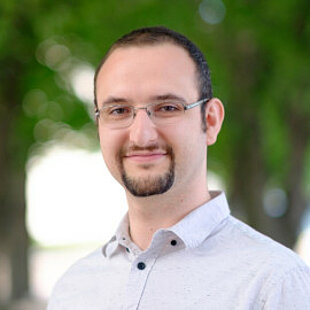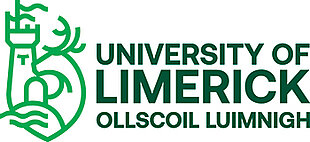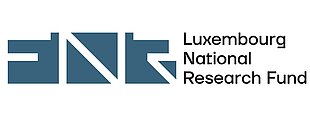Consortium
Luxembourg Institute of Science and Technology (LIST)
(Project Coordinator)


Dr. Fintan McGee is a permanent researcher at LIST. His primary field of research is data visualization, focusing on multilayer network visualization, multivariate data analytics multilayer and evaluation of information visualization. He is the PI on a project providing COVID-19 contact tracing visualization for the Luxembourgish Ministry for Health, based on his multilayer network visualization research. He was a work package leader on the BLIZAAR project, an international collaboration co-funded by FNR (Luxembourg, INTER/ANR/14/9909176) and ANR, focusing on Multilayer Network visualization for Digital Humanities and Biological Data. He was an organiser of the recent Dagstuhl Seminar on ``Visual Analytics of Multilayer Networks across Disciplines'' (#19061) and a VIS 2019 workshop on multilayer network visualization. He is also a member of the program committee for the annual Complex Networks conference to take place in Madrid.
Google Scholar: https://scholar.google.com/citations?user=dbDRykkAAAAJ
Aalto University (AU)


Dr. Mikko Kivelä is network scientist and an assistant professor at the Department of Computer Science at the Aalto University. His academic background lies somewhere between mathematics, computer science, and physics. His research area focuses on the field of network science or complex networks. This means he is interested in complex systems composed of a large number of elements interacting with one another in non-trivial ways, often leading to emergent phenomena. Social systems are a notable example: they consist of multiple elements (people) interacting through social relationships, which result in complex emergent behaviours such as social groups, societies, and conflicts. Other examples of such complex systems include transportation networks, gene-regulatory systems within cells, ecological systems, and more. He views all these systems as networks that can be studied using similar sets of tools and theoretical approaches.
Google Scholar: https://scholar.google.com/citations?user=Z3913I0AAAAJ
Sabanci University (SU)

Dr. Onur Varol is an Assistant Professor at the Sabanci University Faculty of Engineering and Natural Sciences and Principal Investigator at the VIRAL Lab. His research focuses on developing techniques to analyze online behaviors to improve individual well-being and address societal problems using online data. He is awarded by The Turkish Science Academy to Young Scientist Awards (2022) and Research Incentive Award by METU Parlar Foundation (2022). He also received TUBITAK 2247-D National Leader Researcher Grant in 2022. Prior to joining Sabanci University, he was a postdoctoral researcher at Northeastern University at the Center for Complex Network Research. He completed his PhD in Informatics at Indiana University, Bloomington (USA). His thesis focuses on the analysis of manipulation and threats on social media and he was awarded the 2018 University Distinguished Ph.D. Dissertation Award. He has developed a system called Botometer to detect social bots on Twitter and his team ranked top 3 worldwide at the 2015 DARPA Bot Detection Challenge.
Scholar: https://scholar.google.com/citations?user=t8YAefAAAAAJ
University of Limerick (UL), Social Dynamics Lab: Psychology Dept.


Prof. Dr. Mike Quayle is a social psychologist at the University of Limerick and honorary Senior lecturer at the University of KwaZulu-Natal, South Africa. His research explores identity, and how active identity production impacts on psychological experiences and outcomes. He is PI of the Social Dynamics Group of the Psychology Department at the University of Limerick. This group houses Prof. Quayle’s radically interdisciplinary ERC project developing a network theory of attitudes by combining experimental social psychology, computational modelling and network science. This group currently two postdocs and two PhD students funded by the ERC (split across Psychology and applied maths), a Data Science PhD student funded by the SFI CRT programme, and an incoming Marie Curie fellow (a physicist working under Prof. Quayle’s mentorship) developing network models of vaccine hesitancy.
Google scholar: https://scholar.google.com/citations?user=XxfnuikAAAAJ
Vrije Universiteit Brussel (VUB)


Prof. Dr. Nikos Deligiannis is an Associate Professor with the Department of Electronics and Informatics (ETRO), VUB. He is also the Programme Director of the Master in Applied Computer Science at VUB. His current research interests focus on interpretable machine learning, explainable AI, federated AI, image and video processing, computer vision, and natural language processing. He is a member of the EURASIP and served as the Chair of the EURASIP Technical Area Committee on Signal and Data Analytics for Machine Learning in the period 2021-2023. He serves as an Associate Editor for the IEEE Transactions on Image Processing and has been a Guest Editor for special issues at the EURASIP Journal on Advances in Signal Processing and the Signal Processing journal.
Google scholar: https://scholar.google.com/citations?user=iUGMLcYAAAAJ
The CON-NET project has received funding from the following 4 agencies: FNR (Luxembourg), AKA (Finland), TÜBITAK (Turkey), IRC (Ireland).




